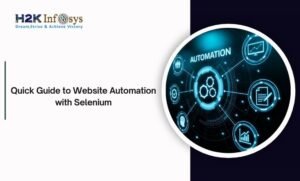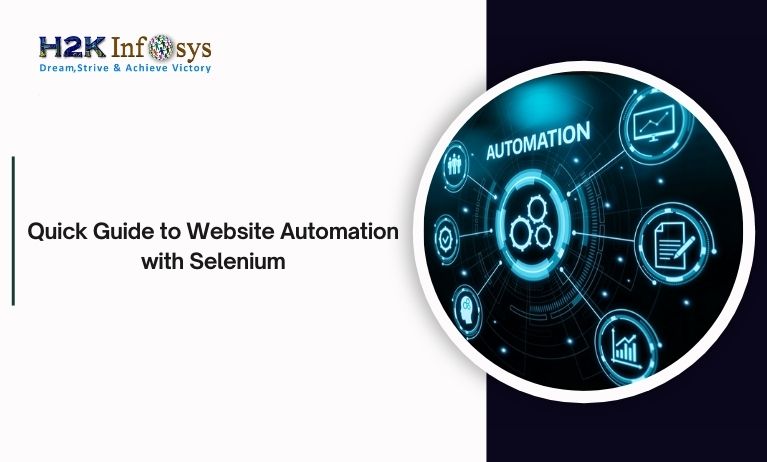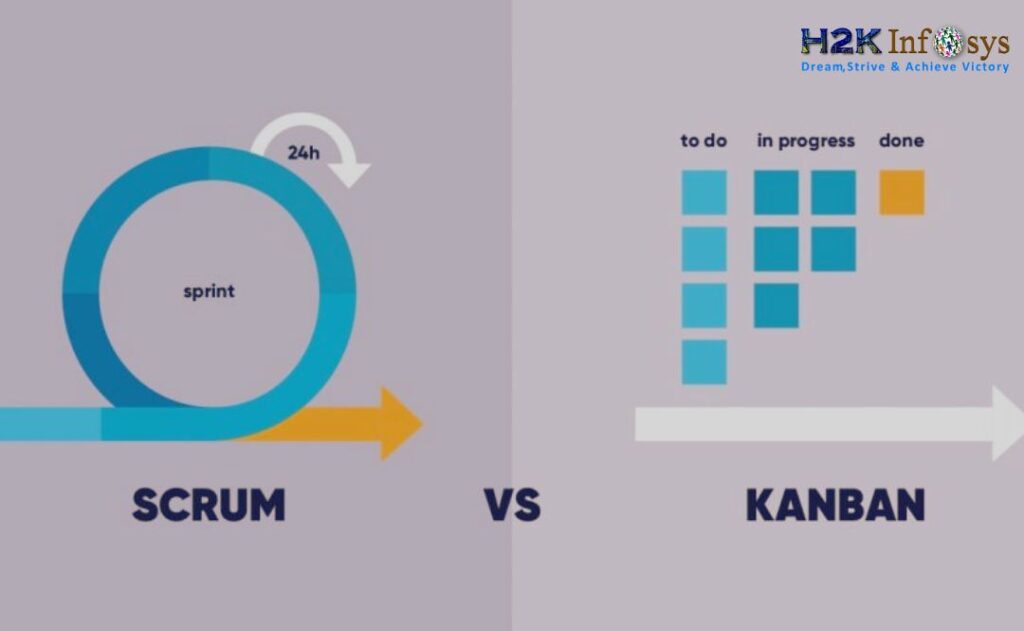Introduction
Artificial Intelligence (AI) is revolutionizing industries, creating high demand for skilled professionals in the field. Among AI roles, Azure AI Engineers stand out due to their expertise in Microsoft Azure’s cloud ecosystem and AI services. But what makes this role so lucrative? And how can you position yourself to take advantage of this career trend? In this article, we’ll explore the salary trends for Azure AI Engineers, industry demand, and the skills required to succeed—alongside how H2K Infosys’s advanced artificial intelligence and Online DevOps Courses can prepare you for this exciting journey.
Why Pursue a Career as an Azure AI Engineer?
- High Demand for AI Expertise
- AI continues to be a top priority for businesses, with AI Adoption in industries like healthcare, finance, and manufacturing growing rapidly.
- According to Gartner, 50% of enterprises will have platforms for AI engineering by 2025.
- Lucrative Salary Opportunities
- With businesses heavily investing in AI, skilled Azure AI Engineers are offered competitive salaries. A career in AI provides job security and financial growth.
- Integration with DevOps
- Companies increasingly integrate DevOps practices with AI workflows. Knowledge of both fields opens up broader opportunities.
Current Salary Trends for Azure AI Engineers
Global Average Salaries
- United States: $120,000 to $160,000 annually.
- Europe: €70,000 to €100,000 annually.
- India: ₹20 LPA to ₹50 LPA.
Factors Influencing Salaries
- Experience Level
- Entry-level engineers: $80,000 – $100,000.
- Mid-level professionals: $120,000 – $140,000.
- Senior engineers with certifications: $150,000+.
- Location
- Urban centers with tech hubs, such as Silicon Valley or Bangalore, offer higher pay.
- Certifications
- Earning AI certifications, such as Microsoft Certified: Azure AI Engineer Associate, significantly boosts earning potential.
Comparison with Related Roles
Those with DevOps knowledge see an additional 10-15% salary premium.
Azure AI Engineers typically earn 15-20% more than general AI Engineers due to their specialization in the Azure ecosystem.
Future Outlook for Azure AI Engineers
Growing Adoption of AI in Cloud Platforms
As more businesses migrate to cloud platforms like Microsoft Azure, the demand for scalable, secure, and intelligent solutions is skyrocketing. Azure’s AI services enable companies to deploy machine learning models, natural language processing, and computer vision at scale. This widespread adoption ensures a growing market for Azure AI Engineers who can design and implement these cutting-edge solutions.
AI and DevOps Synergy
The integration of AI and DevOps has become a strategic priority for many organizations. DevOps practices enhance AI pipelines by enabling faster deployment, testing, and iteration of models. As a result, there’s a significant demand for professionals who possess a dual expertise in AI engineering and DevOps, making them invaluable assets to businesses striving for innovation and agility.
The Rise of Automation and Intelligent Applications
Automation of repetitive tasks, AI-driven decision-making systems, and intelligent business applications are driving the need for skilled AI Engineers. From automating workflows to building AI-driven chatbots, Azure AI Engineers play a pivotal role in these advancements.
Upskilling Opportunities
The Importance of Lifelong Learning
With rapid advancements in AI and cloud technologies, professionals need to continuously upskill. This includes staying updated on the latest Azure tools, DevOps practices, and AI frameworks.
Accessible Online Learning
Platforms like H2K Infosys provide specialized courses that combine theoretical knowledge with hands-on practice, covering topics such as artificial intelligence, cloud computing, and DevOps. These courses are designed to meet the evolving needs of the industry, ensuring professionals stay ahead of the curve.
Benefits of Certification
Certifications like the Microsoft Certified: Azure AI Engineer Associate and Microsoft Certified: Azure Solutions Architect Expert not only validate technical skills but also enhance credibility in the job market.
Essential Skills for Azure AI Engineers
Core Technical Skills
- Azure Services: Expertise in Azure Machine Learning, Cognitive Services, and Azure Bot Services is essential for developing AI solutions.
- Programming Languages: Proficiency in Python, R, Java, or C# is crucial for building and deploying AI models.
- Machine Learning Frameworks: Hands-on experience with tools like TensorFlow, PyTorch, and Scikit-learn enhances employability.
AI Certifications
- Certifications ensure professionals demonstrate proficiency in AI and cloud computing. Examples include:
- Microsoft Certified: Azure AI Engineer Associate
- Microsoft Certified: Data Scientist Associate
- Advanced certifications such as Azure Solutions Architect Expert showcase expertise in designing end-to-end solutions.
DevOps Knowledge
Infrastructure as Code (IaC): Knowledge of tools like Terraform and Azure Resource Manager (ARM) templates to automate infrastructure provisioning.
CI/CD Pipelines: Understanding of continuous integration and delivery pipelines to streamline AI model deployment.
Containerization Tools: Experience with Kubernetes and Docker for managing and scaling AI applications in a cloud environment.
Industry Trends Shaping Azure AI Engineering
Focus on Explainable AI (XAI)
Businesses demand transparency and interpretability in AI models. Engineers with skills in explainable AI are highly sought after.
Edge AI Development
With the rise of IoT and edge computing, there’s a growing demand for deploying AI models on edge devices using Azure IoT Edge.
Ethical AI and Governance
Companies prioritize ethical AI development and compliance with regulations. Knowledge of responsible AI frameworks is becoming a key skill.
AI-Driven Personalization
As businesses adopt AI to enhance customer experiences, engineers specializing in personalized recommendation systems are in high demand.
By focusing on these trends and skill sets, Azure AI Engineers can secure lucrative roles and long-term career growth.
Why Choose H2K Infosys for Your AI and DevOps Training?
- Comprehensive Curriculum
H2K Infosys offers meticulously designed courses that cover the latest industry trends and technologies. From foundational AI concepts to advanced Azure AI engineering techniques and DevOps integration, the courses are tailored to meet the dynamic needs of the tech industry. - Expert-Led Training
Learn from experienced professionals who bring real-world expertise to the classroom. Their practical insights and personalized guidance help you navigate the complexities of AI and DevOps with ease. - Flexible Learning Options
With online learning modules, you can study at your own pace and balance your professional commitments. Interactive sessions, recorded lectures, and 24/7 access to study materials ensure a seamless learning experience. - Real-World Projects
Gain hands-on experience through live projects that simulate industry challenges. These practical opportunities not only solidify your learning but also enhance your portfolio for potential employers. - Certification Preparation
H2K Infosys equips you with the knowledge and skills to excel in certification exams, including Microsoft Certified: Azure AI Engineer Associate and Azure Solutions Architect Expert. These credentials significantly boost your employability and earning potential. - Career Support
Beyond training, H2K Infosys provides career guidance, including resume building, interview preparation, and job placement assistance, ensuring you’re well-prepared to land your dream role.
The Road Ahead: Embrace the AI Revolution
The future belongs to those who can adapt to technological advancements and drive innovation. As industries continue to embrace AI and cloud technologies, the demand for skilled Azure AI Engineers is set to rise exponentially. By pursuing specialized training and certifications, you not only meet this demand but also become a catalyst for change in the digital age.
Action Steps: Take Charge of Your Career
- Step 1: Research the Azure AI Engineer role and its requirements.
- Step 2: Enroll in H2K Infosys’s Advanced Artificial Intelligence and Online DevOps Courses.
- Step 3: Gain practical experience through hands-on projects and industry exposure.
- Step 4: Achieve certifications to validate your expertise and showcase your skills.
- Step 5: Apply for Azure AI Engineer roles and embark on a fulfilling career journey.
Start Your Transformation Today
Don’t wait for opportunities to knock—create them. With H2K Infosys as your training partner, you have the tools, resources, and support needed to thrive in the AI and DevOps domains. Whether you’re a beginner or a seasoned professional looking to upskill, the right training can unlock limitless possibilities.
Visit H2K Infosys now to explore courses and take the first step toward a transformative career as an Azure AI Engineer!
Key Takeaways
- Azure AI Engineers are in high demand, offering competitive salaries globally.
- Industry trends suggest a strong future outlook for AI professionals with DevOps skills.
- Investing in AI certifications and online DevOps courses enhances career opportunities.
- H2K Infosys provides the advanced Artificial Intelligence and online DevOps courses you need to excel in this field.
Conclusion
In summary, becoming an Azure AI Engineer is a well-paying career and keeps you at the cutting edge of innovation. This position gives you the chance to take part in AI and cloud-related game-changing projects all over the world. The number of people professionaly qualified to do this work is relatively small, so the prospects are endless. Pairing these skill sets together with industry-recognized certification and dash of practical skills puts you ahead of the game. With the support of the comprehensive training programs by H2K Infosys, you gain the knowledge, confidence, and enough experience to make you a competent candidate in the field. There’s no sense in wasting time – take advantage of all the world has to offer with AI and cloud technology and start building a career that makes an impact. Thank us later once we help you become an Azure AI Engineer.



















